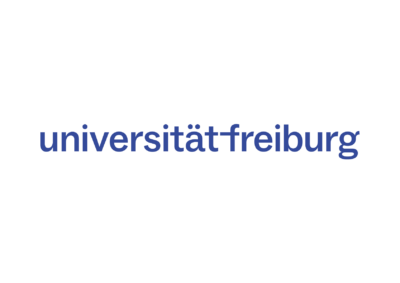Hitting the Pause Button on the EU Project?
A Self-Inflicted Outcome Due to the Lack of Political Integration
As citizens are casting their ballots in 27 members states to elect their representatives in the EU Parliament, political uncertainty looms over the continent. Yet, despite the much-hyped Zeitenwende feel of these EU elections, no compelling explanation of why and how our participation to these elections may affect the Union’s future has been provided to the electorate. The question of how our individual preferences may play out in the future direction of the Union remains a mystery to the many.
For starters, there’s little or nothing European about the EU Parliament elections.
First, EU voters vote on different dates – the Dutch on June 6th, the Irish on the 7th, the Slovaks and Maltese on the 8th and all others on the 9th.
Second, they do so under different electoral laws, with some countries like Austria, Belgium and Germany allowing 16-year-olds to vote, in Greece you need to be 17 while in other places 18.
Third, the EU has no pan-EU political party system. Voters are asked to cast their ballots for candidates selected by national – not European – parties. Although most national parties running in the EU elections belong to European political parties, such as the European People’s Party (EPP), the Alliance of Socialists and Democrats (S&D), or Identity and Democracy (ID), the latter remains invisible – and their candidates unknown – to the average voter.
Fourth, not only are the national parties not required to join any of the existing Europarties, but when they do so, they only seldom indicate their EU affiliation on the logos appearing on the national ballot boxes. How many German voters know than when choosing the CDU, they are also supporting Italian Forza Italia, Donald Tusk’s Polish Civic Platform and the French Les Republicains? How many Italians do know that when voting for Giorgia Meloni’s Brothers of Italy they are also supporting the Polish’s Law & Justice party, better known as PiS, the Spanish’s ultra-right Vox and possibly soon Hungary’s Fidesz led by the defiant Viktor Orbán at the EU level?
Ultimately, Europarties consist of weak, extra-parliamentary, and largely invisible federations of parties from several EU member states, united by thin political affinity.
In these circumstances, the EU parliamentary election is little more than 27 parallel national elections. This conclusion is further compounded by an additional structural feature of EU democracy. The EU continues to lack a pan-European media sphere, and as a result a genuine European public opinion struggles to emerge. Despite states’ interdependence in matters concerning their citizens’ daily lives – ranging from economic policy, climate action to defense policy – Europeans are exposed exclusively to domestic accounts of EU developments. These accounts are inevitably partial, often misinformed, and generally misleading, in part because national politicians pass the buck and scapegoat the EU. No surprise that most MEP candidates campaign on national – not EU – policy issues.
As a result, the EU lacks a European political space capable of fostering a genuine transnational space of debate and dialogue – both, within institutions and outside them – where citizens can understand, influence and participate in decision-making affecting their common interests as Europeans. In the absence of a genuine political Europe, it’s not up to the citizens but to former EU leaders, such as Enrico Letta, Sauli Niinistö and Mario Draghi, through technocratic reports, to shape EU’s future direction – be it on the future of the single market, Europe’s civilian and defence preparedness as well as EU competitiveness.
++++++++++Advertisement++++++++

Stiftungsprofessur für Recht der Nachhaltigkeit und Mobilität
Am Institut für Theorie und Zukunft des Rechts der Rechtswissenschaftlichen Fakultät der Universität Innsbruck ist eine Universitätsprofessur für das Recht der Nachhaltigkeit und Mobilität – Euregio Stiftungsprofessur des Landes Tirol gemäß § 99 Abs. 1 UG 2002 zu besetzen (4 Jahre, 100 %).
Bewerbungsfrist: 3.7.2024
Hier finden Sie die Ausschreibung. Wir freuen uns darauf, von Ihnen zu hören!
Bei Rückfragen wenden Sie sich gerne an Prof. Kettemann (matthias.kettemann@uibk.ac.at).
++++++++++++++++++++++++
Any attempt to Europeanise electoral competition, as required by the 2009 Lisbon Treaty when it timidly introduced a form of parliamentarisation of the Union, has largely failed. And that despite Ursula von der Leyen’s promise, in the aftermath of her rocambolesque choice as Commission President in 2019, to rewrite the “rules of the EU democratic game”, with the help of randomly selected citizens and with national and EU political representatives unprecedently mixed in a transnational deliberative Conference on the Future of Europe.
The EU Parliament’s proposal for a new EU Electoral Act would have conferred each voter two votes: one to elect MEPs in national constituencies, and one in an EU-wide constituency (composed by additional 28 sets). The proposal has not even reached the table of the Council of the EU because of Member States’ disfavor. Despite the small number of seats allocated transnationally, this reform would have been a game-changer towards the establishment of an embryonic EU-wide electoral competition. By requiring for the first time every single national party running in the EU elections to disclose its EU political affiliation to its electorate across the entire Union, it would have contributed to establish a link between citizen’s vote and the political colour of the next EU Commission. Amid the development of a more intelligible electoral process, this would have in turn provided true meaning to, and shed greater light on, the obligation of the European Council to ‘take into account’ the results of the EU elections when selecting the candidate Commission President. Let’s remember that the Treaty of Lisbon changed the designation of MEPs from being representative of “the peoples of the States brought together in the Community” into being “representatives of the Union’s citizens”.
Instead, after witnessing a decade of timid Europeanisation of the political conversation – as pioneered by the European Greens and other genuinely transnational political parties such as Diem and Volt – the 2024 EU elections are first and foremost a national affair.
This retrenchment of EU politics within the nation state appears not only paradoxical, but also a-historical, given the transnational nature of most of the major recent events facing the Union, from Covid to the Russian invasion of Ukraine and now the Gaza war.
From such a perspective, the much-awaited surge of far-right political parties celebrating an exclusive nationalist essentialism appears as a self-inflicted damage by the mainstream parties.
By stopping the emergence of any form of Europeanisation of the EU political space, Europe’s political leaders are not only depriving themselves from the opportunity to advance EU integration at the time it is most needed, but also playing in favor of nationalist parties. For the first time, far-right, anti-establishment parties may secure approximately 25% of the seats of the next EU Parliament.
If these very same parties govern – directly or indirectly – over a dozen EU member states, including founding EU states, such as Italy and the Netherlands – where they have gained unprecedented respectability over time –, the same process of normalisation has however not yet occurred at the EU level.
Contrary to the alarmist, often dystopian, headlines by mainstream media, these EU elections won’t give the EU away to the far-right. Yet, while opening the EU project to a wider set of voices, they will offer these parties the unprecedented chance to frustrate any further integration effort.
++++++++++Advertisement++++++++

An der Fachhochschule Potsdam ist am Fachbereich Informationswissenschaften ab sofort folgende Position zu besetzen:
Akademische*r Mitarbeiter*in
für das Projekt “Kulturwandel in den Rechtswissenschaften” (KidRewi) (w/m/d)
Umfang: 50 %; mit informationswissenschaftlichen Kenntnissen bis zu 100 %
Vergütung bis Entgeltgruppe 13 TV-L
Den ausführlichen Ausschreibungstext finden Sie auf unserer Homepage unter:
https://www.fh-potsdam.de/hochschule-karriere/karriere/stellenangebote-fh-potsdam
++++++++++++++++++++++++
For a taste of what is to come next, look at what happened over the past few months when the outgoing Commission President, feeling the pressure of EU’s far-right parties and farmers’ protests, walked away from her legacy file – the Green New Deal. She did this to regain the confidence of her own party, the EPP, but also that of many liberals, such as the German liberal FDP, or French President Macron, calling for a “climate regulatory pause”. Previously, she also shifted the EU migration policy from a humanitarian challenge to a security problem, by largely coopting the blueprint dictated by the far-right.
From this perspective, these elections are set to accelerate a shift to the right – which has already largely taken place within and across the EU – and bring it to a different level.
If the EU climate ambitions will be a collateral victim of this process, it’s the EU’s broader, traditionally integrationist agenda that’s at stake. The enlargement of the Union, which is closely intertwined with institutional reform, is likely to be slowed down or even paused under the far-right influence. The next long-term EU budget, due to be negotiated by the EP in 2026, is set to shrink. This may create a dangerous gap between growing citizens expectations vis-à-vis the EU to address major challenges and the means it will have at its disposal to do so. This can’t help but damage the EU’s credibility, to the immediate benefit of the new far-right political class vis-à-vis their nationalist, Europhobic and xenophobic constituencies.
A strong performance by the far-right may therefore give them the chance – for the first time ever – to frustrate, by slowing down or pause, the mainstream, pro-integrationist agenda.
This is what is at stake in these elections. An unparalleled and regressive transformation of what can realistically be expected from the EU project.
*
The Week on Verfassungsblog
We started the week with a topic that the New York Times picked up on – albeit only on Friday: the increasing spread of non-consensual intimate deepfakes. These are AI-generated images that show a real person naked or otherwise intimate. They are sometimes indistinguishable from real photos and can cause considerable psychosocial problems for those affected – mostly women and children. BEATRIZ KIRA has uncovered a gap in current debates on misinformation and content moderation.
The student protests against the Gaza war have already been covered multiple times on our blog. In Berlin, the student protests intensified when, on May 23, 2023, the German Constitution Day, the police cleared the university. This incident garnered particular attention because the university president stated that she had been instructed by the science senator and the governing mayor to end the occupation. BENJAMIN RUSTEBERG and MICHAEL PLÖSE reflect on the conditions and limits of the Berlin Senate’s oversight of the university.
The DSA – Europe’s ‘constitution of the internet’ – transfers considerable regulatory powers to private actors. By means of codes of conduct and other publicly sanctioned soft laws, rules are thus established outside the legislative process, and generally beyond public scrutiny. TAHIREH PANAHI and ANDRESSA DE BITTENVOURT SIQUEIRA find – in German and English – that this endangers democracy and the rule of law.
In an unprecedented scandal surrounding a Polish governmental fund, the revelations show broad levels of bureaucratic acquiescence with shocking abuses of power. Tomasz Mraz, the former director of the Justice Fund – a large governmental program created to assist victims of crimes – decided to talk. The Fund was PiS’s favorite device to finance its worst excesses: from purchasing the Israeli’s Pegasus software, later used against opposition leaders in the 2019 PiS-won election campaign, to shamelessly supporting pro-regime cronies. Accordingly, MACIEJ KISILOWSKI calls for a democratically militant public administration – the new vision of civil service better prepared to fend off authoritarian encroachment from elected politicians.
++++++++++Advertisement++++++++

Conference “A Playbook for Reinstating the Rule of Law” from 20–21 June 2024 at the University of Freiburg, Germany.
As part of the Excellence Cluster Initiative “Constitution as Practice in Times of Transformation” (ConTrans), the two-day conference sheds light on the transition process back to the rule of law in Poland from a comparative and interdisciplinary perspective.
Further information as well as a livestream can be found at www.ruleoflaw-freiburg.de.
++++++++++++++++++++++++
The Swiss Parliament continues to resist further transparency regulations concerning its own activities. This time, the issue involves the secondary income of its members: On May 28, 2024, the Council of States decided to reject a parliamentary initiative to disclose income ranges. ODILE AMMANN argues that the parliament is increasingly distancing itself from the interests of voters – and thus also from its constitutional mandate, which states that it should only be accountable to the people.
In May 2024, the Advocate General of the CJEU issued his Opinion on the Mirin case (C‑4/23) concerning the right to Legal Gender Recognition (LGR) for transgender persons. The Opinion deviates from the Court’s previous case-law making it about free movement rather than protection against discrimination or fundamental rights. It also places the trans* persons in an administrative situation that is defeating the very purpose of LGR – simultaneously existing as a man on the birth certificate and as a wife and mother on other documents. AUDREY M. PLAN argues for a more satisfactory and ambitious alternative framing the LGR as protected under the EU Charter instead.
++++++++++Advertisement++++++++

Commemorating the centenary of the Max Planck Institute for Comparative Public Law and International Law, the blog project MPIL100 is searching for common threads in the Institute’s history, analyses its entanglements with politics and government from the Weimar Republic to the European Union, and offers spaces for multidisciplinary contributions as well as personal memories, reviews and reflections.
++++++++++++++++++++++++
There are growing calls to extend criminal law to protect the constitution and the state. However, proposals so far have mostly responded to individual phenomena. MICHAEL KUBICIEL argues that what is needed is an overall strategy based on a comprehensive risk analysis.
The citizens of the European Union are currently electing the European Parliament. But what ideas for the future of Europe are actually debated at the moment? The era of grand visions seems to be over, observes ALEXANDER THIELE – and highlights deficiencies and alternatives to the current debate on the EU’s finality.
JOACHIM BEHNKE discusses the abolition of the basic mandate clause (Grundmandatsklausel) from a moral point of view. He concludes that its abolition is morally justified because the conditions that may have originally favoured the introduction of the basic mandate clause no longer exist.
*
That’s all for this week. Take care and all the best,
the Verfassungsblog Editorial Team
If you would like to receive the weekly editorial as an email, you can subscribe here.



